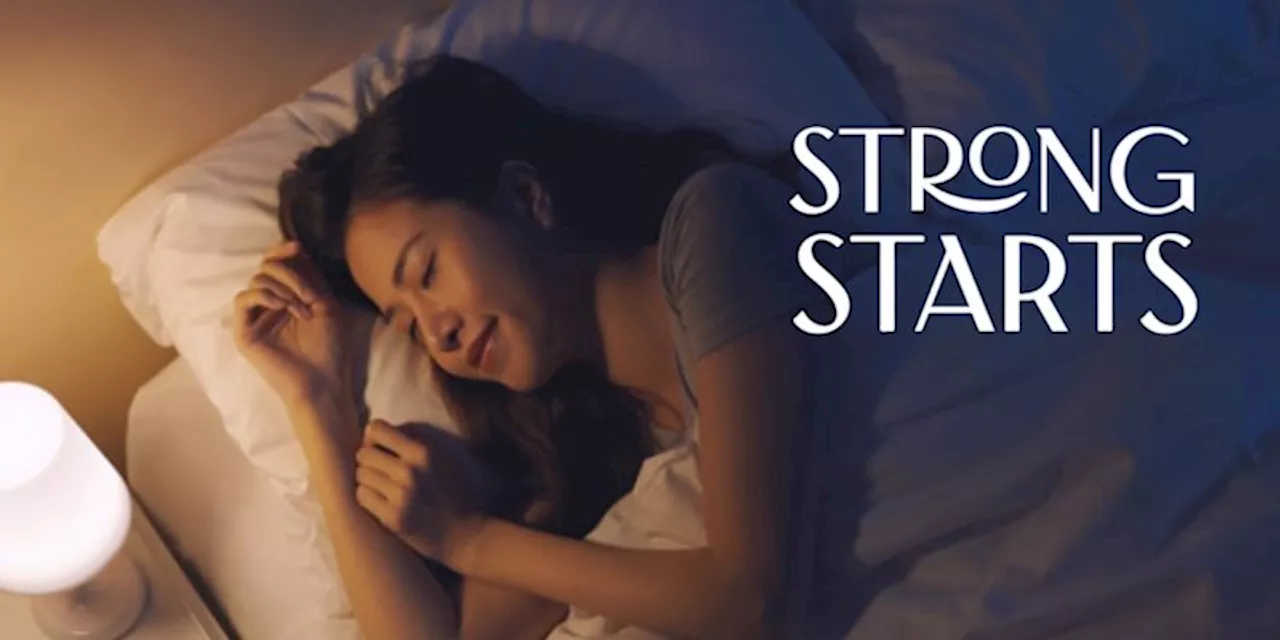New research from Edith Cowan University (ECU) suggests that implementing better sleep hygiene practices can significantly improve sleep quality for FIFO mining shift workers.
New research from Edith Cowan University (ECU) has revealed that implementing better sleep hygiene practices can significantly improve sleep quality for fly-in, fly-out (FIFO) mining shift work ers. Sleep hygiene encompasses a range of habits and environmental factors that promote healthy sleep, including a balanced diet, regular physical activity, and limiting screen time.
While these practices seem straightforward, the remote locations of mine sites across Australia and the demanding nature of the mining industry often make it challenging for FIFO workers to prioritize sleep.ECU PhD candidate, Mr. Philipp Beranek, highlighted that shift workers frequently struggle to achieve and maintain sufficient sleep quality and duration. Previous studies have indicated that average sleep durations for FIFO workers are considerably shorter than those of the general population. FIFO workers on day shifts average 6 hours to 6 hours and 19 minutes of sleep, while those working night shifts manage only 5 hours and 32 minutes to 6 hours and 12 minutes. Even on their days off, FIFO workers average 6 hours and 49 minutes to 7 hours and 18 minutes of sleep. Mr. Beranek explained that shift work disrupts natural sleep patterns because workers lack a consistent sleep schedule. Their internal body clocks, or circadian rhythms, are often misaligned with their work hours. Working the night shift, for example, requires individuals to sleep during the day, when their bodies are naturally programmed to be awake and alert.Furthermore, FIFO workers face additional challenges in managing their sleep due to the demanding nature of their work schedules. They must still attend to daily tasks like meals, laundry, exercise, and commuting, all within a 24-hour period. This can leave little time for sufficient rest. Mr. Beranek emphasized that specific factors associated with improved sleep health in FIFO workers include a conducive sleep environment, a more regular sleep schedule, and better mental well-being.Creating an optimal sleep environment in remote mining camps can be challenging, particularly in regions like the Pilbara in Western Australia where summer temperatures are extremely high. Elevated room temperatures can disrupt the sleep of night shift workers who sleep during the day. Maintaining a regular sleep schedule is crucial for FIFO workers, even though rotating shifts make it difficult to achieve. Mr. Beranek recommends that workers strive for a consistent sleep schedule during their day shifts, night shifts, and days off at home.Another promising strategy is the use of circadian-informed lighting, which synchronizes artificial lighting with a person's natural biological rhythms. Research has shown that this approach can significantly improve sleep quality.
Sleep Hygiene FIFO Workers Mining Industry Shift Work Sleep Disorders
United States Latest News, United States Headlines
Similar News:You can also read news stories similar to this one that we have collected from other news sources.
 6 Habits to Ditch for Better Sleep in 2025This article highlights six common habits that can negatively impact sleep quality and provides actionable tips on how to break them for a more restful year.
6 Habits to Ditch for Better Sleep in 2025This article highlights six common habits that can negatively impact sleep quality and provides actionable tips on how to break them for a more restful year.
Read more »
 The Disengaged Teen: Helping Kids Learn Better, Feel Better, and Live BetterAuthors Jenny Anderson & Rebecca Winthrop Explain Teens’ Four Modes of Engagement — & How They’re ‘States, Not Traits’
The Disengaged Teen: Helping Kids Learn Better, Feel Better, and Live BetterAuthors Jenny Anderson & Rebecca Winthrop Explain Teens’ Four Modes of Engagement — & How They’re ‘States, Not Traits’
Read more »
 Chargers offseason primer: ‘Build, build, build, better, better, better, version 2.0’A look at the Chargers’ offense, including returning starters, their pending free agents, salary cap issues and upcoming draft picks.
Chargers offseason primer: ‘Build, build, build, better, better, better, version 2.0’A look at the Chargers’ offense, including returning starters, their pending free agents, salary cap issues and upcoming draft picks.
Read more »
 Millennials Share Sleep Hacks: 'Rawdogging' Sleep and Falling Asleep InstantlyA viral Reddit thread has sparked discussions about sleep habits, with millennials sharing their experiences with 'rawdogging' sleep - falling asleep instantly without any aids. Some users boast about their ability to fall asleep at will, while others confess to relying on various sleep aids like podcasts, fans, or white noise machines.
Millennials Share Sleep Hacks: 'Rawdogging' Sleep and Falling Asleep InstantlyA viral Reddit thread has sparked discussions about sleep habits, with millennials sharing their experiences with 'rawdogging' sleep - falling asleep instantly without any aids. Some users boast about their ability to fall asleep at will, while others confess to relying on various sleep aids like podcasts, fans, or white noise machines.
Read more »
![]() Sleep Tracking Devices: Data Overload or Pathway to Better Rest?This article explores the growing popularity of sleep tracking devices and the potential downsides of focusing too heavily on sleep data. It argues that while tracking sleep can be helpful, an obsessive approach to optimizing sleep, known as orthosomnia, can actually worsen sleep quality. The article emphasizes the importance of considering the bigger picture, including diet and lifestyle factors, for achieving good sleep.
Sleep Tracking Devices: Data Overload or Pathway to Better Rest?This article explores the growing popularity of sleep tracking devices and the potential downsides of focusing too heavily on sleep data. It argues that while tracking sleep can be helpful, an obsessive approach to optimizing sleep, known as orthosomnia, can actually worsen sleep quality. The article emphasizes the importance of considering the bigger picture, including diet and lifestyle factors, for achieving good sleep.
Read more »
 New Advances in Sleep Health: Caffeine, Diet, Napping, and Sleep Apnea TreatmentsThis article explores recent findings and developments in sleep health, covering topics such as caffeine consumption, diet and insomnia, napping strategies, and new treatments for sleep apnea.
New Advances in Sleep Health: Caffeine, Diet, Napping, and Sleep Apnea TreatmentsThis article explores recent findings and developments in sleep health, covering topics such as caffeine consumption, diet and insomnia, napping strategies, and new treatments for sleep apnea.
Read more »
